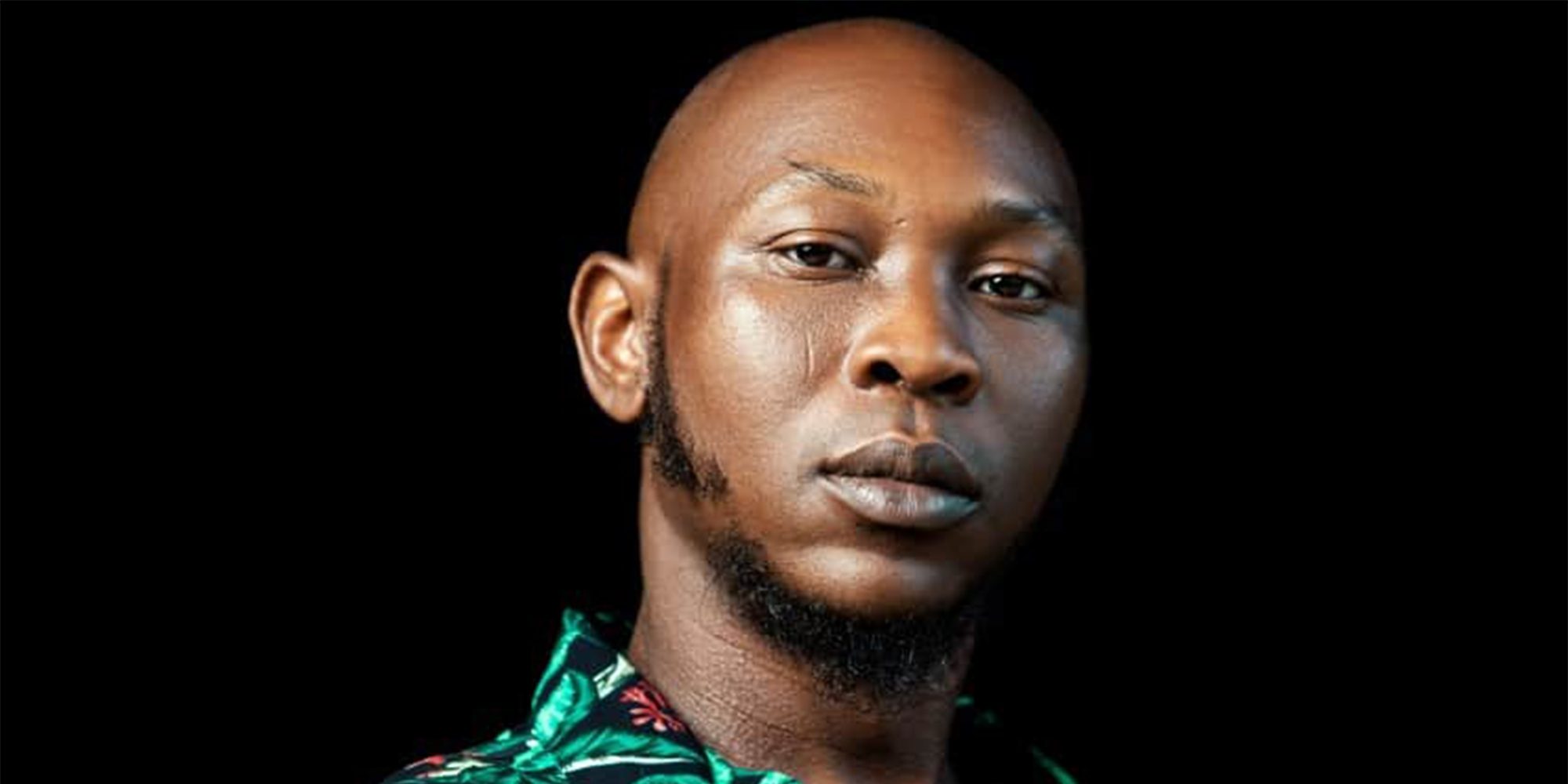Seun Kuti, Fela’s youngest son, will be 40 in a few months. He is working on his sixth studio album, and will soon be rolling out songs from his pandemic-era collaboration with Black Thought. The first one, a remix of “Kuku Kee Me,” just dropped. Meanwhile, Seun and Egypt 80, the band he took over when his father died in 1997, are back on tour in the U.S.. Tour dates are listed at the end of this interview. Afropop’s Banning Eyre reached Seun in Chicago to catch up. Here’s their conversation.
Banning Eyre: Seun, How are you doing?
Seun Kuti: Hey Banning, I’m good, man.
You’re in Chicago?
Yeah. We have a show here tomorrow.
I think the last time we met was in your house in Lagos in 2017.
That's right.
A lot has been going on since then. What was the pandemic like for you?
It was lockdown. It was different. But I was happy for the world. I saw a lot of hope. There were a lot of relationships that one had not had the time to nurture because we were moving all the time. The world was always moving. We could not nurture those personal relationships. And even the climate itself. In just that little bit of time, the planet started to heal. That gave me tremendous hope for how can we reverse the f#$%ery of these corporations that have destroyed this world for profit. How do we get nature to find her balance again, and her voice? How do we hear the birds and the crickets, and the fireflies. I had not seen fireflies in a long, long time, and I saw one during the lockdown. I don't see them anymore again. But I saw one and I hadn't seen one since I was a kid in Lagos.
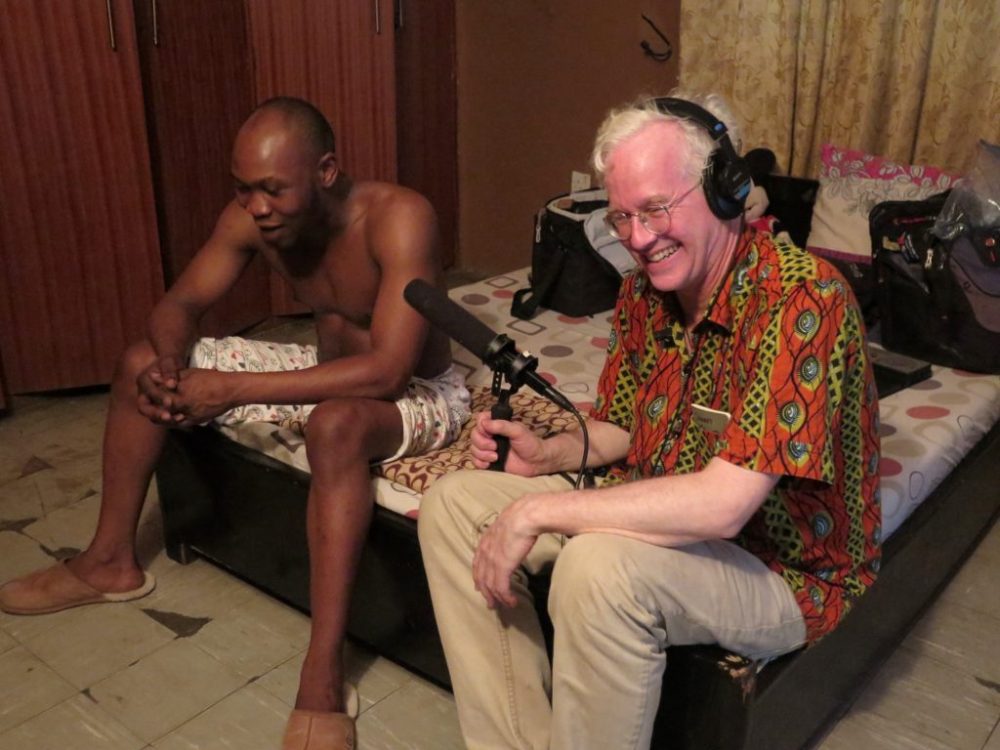
That is an interesting take. I remember those images of wild animals walking into towns because there were no cars on the street. I guess it was a time when nature got to fight back a bit.
Exactly. And there was a little hope as well. I made new relationships. I met amazing new people. I made friends that impacted my life. So yeah, for me, maybe I couldn't do the practical part of music, but the things that inspire me were trending. So that was my pandemic experience.
One of the biggest needs of our society has to be the economical balance between man and this world. In that balance, ideas are devalued. The man with the idea is on the market, and it's the ideas that bring the profits and keep the world rolling. The pandemic did not remove ideas from the equation, but it removed labor from the equation and everything came crumbling down. It was the largest socialist experience experiment ever, and until now nobody's addressing that. All the analysts and everybody are just flying over that part, the fact that, immediately, labor was withdrawn from the equation.
Labor.
Yes, labor. Because people were forced to sit at home, all the markets crashed. But ideas were not forced to sit at home. All the executives could've gone to work and all the machines could've gone to work. But everything came crashing down, because the only true value was labor, and that was proven beyond any doubt.
A lot of artists told me that they were creative during the lockdown. That they were grateful for the time to sit at home and nurture their ideas.
I was working a lot. The projects I did with Common and Black Thought were done during the pandemic, in lockdown. And I have these songs coming out with Black Thought that we recorded during the lockdown. I don't think it was that people were more creative. People were just more in touch with each other again. Everyone slowed down a bit, and we could bounce ideas off one another.
I see you've just released this remix with Black Thought of the song ”Kuku Kee Me.” Very trippy video.
That means, “Why don't you just kill me?” Just kill me. Just kill me. That song is from my Black Times album. The pressures of the world are continually asking man, especially the African man, to sacrifice himself, his dignity, his resources, his future, his children, his health, his labor, his income, the value of his life, continually sacrificing everything for this future that is not even defined by anybody—this progress that we're all rolling towards. But the catch is that nobody gets to find what this destination looks like. And we end up sacrificing so much, so in this song, we're just saying, “What have you left us? What else do you want from us.”
For me, Black Thought has been a great mentor since I met him like, four years ago. We've had that relationship, that rapport, and he's helping me navigate some part of my own artistry that I also want to explore. I am enjoying this process.
That's interesting. Tell me more about how he is mentoring you.
Even with the music. The music for this project was made by my very good friend Alex James, a producer and DJ. He did the remix. So the three of us kind of formed this little triumvirate and we made this thing work across oceans. I was in Africa, Alex was in London, and Black Thought was in Philadelphia, across the oceans.
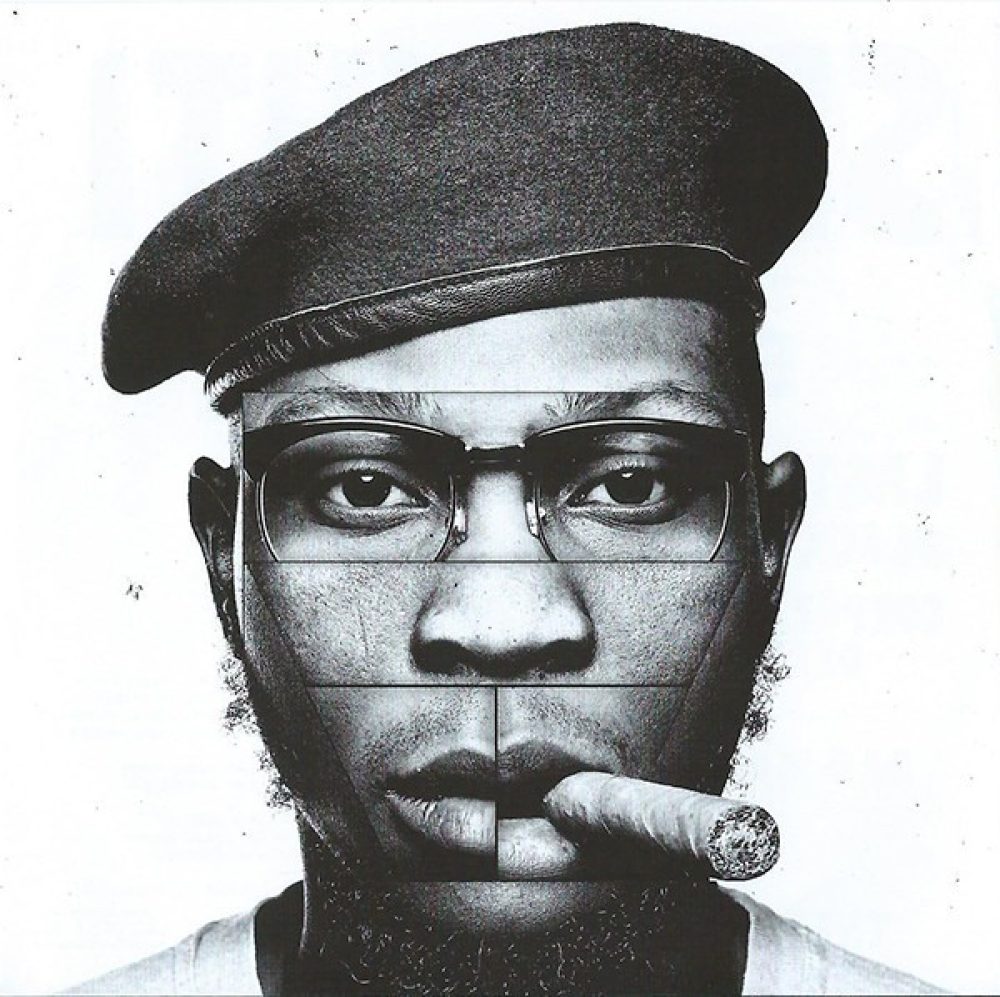
We never spoke about your last album, Black Times. That’s the one that got nominated for a Grammy.
That's from 2018. I have a new double-live recording coming out now, Love and Revolution. It's got two songs from the next project. I just put it out there for the real fans who want to listen to something before we bring out the full project with all the bells and whistles. So it's just something to keep people happy and show the fans the direction we're going with the new music.
I saw your live video of one song from Black Times, “Bad Man Lighter.” It was from the Glastonbury festival. What's that song about?
It's just a song about the fact that everywhere you go, people have all these “no smoking” signs. “Don't smoke here, don't smoke there.” You know? And meanwhile, people are backstage puffing fumes and doing lines. So I said, "We don't care. We just smoke anyway." “Bad Man Lighter” is when you smoke where they say you're not supposed to.
Like in a hotel room? [Seun is smoking a spliff as we speak.]
You know what I'm saying?
Anything else you wanna tell me about Black Times?
It was four years ago, Banning. I remember the songs. But, you know… You can get anything you want to know about the album out there already.
O.K. Let's talk about the band, which is sounding great in these clips I've been watching. How many guys in the band are still there from your dad's time?
Oh wow. The numbers are thinning. Now it's really just the rhythm section, you know? We lost David Obanyedo, the lead guitarist, two years ago. That was a huge blow. He was kind of the last of the musicians aside from the rhythm section. But we have the bassist still, Kunle Justice, and the congas, Kola Onasanya. Now there are four original members. But the replacements have been in the band for a long time too, and they were understudying with the guys. So it's been a smooth transition.
In the world of young musicians in Lagos, it must take a very special person to want to step into these shoes.
Honestly, there's nothing monolithic about the personalities of the musicians and Egypt 80. There have always been musicians within the band who also wanted to do their own projects. They see it as a part of their learning curve, a stepping stone towards that. Then there are people who see Egypt 80 as a lifelong ambition and a project that they want to stick to forever. So these are the two spirits that are in the band, and they create a good dynamic. It took some time before it solidified, even a decade. Most of this band is now two decades with me, since my father died until now. So for me I've also had this kind of intergenerational understanding.
The fundamental character of the band has remained, which is very impressive. I know you didn't tour during the lockdown. When did you go back on the road?
In June. We started in June this year. Since then, I've only been home for eight days.
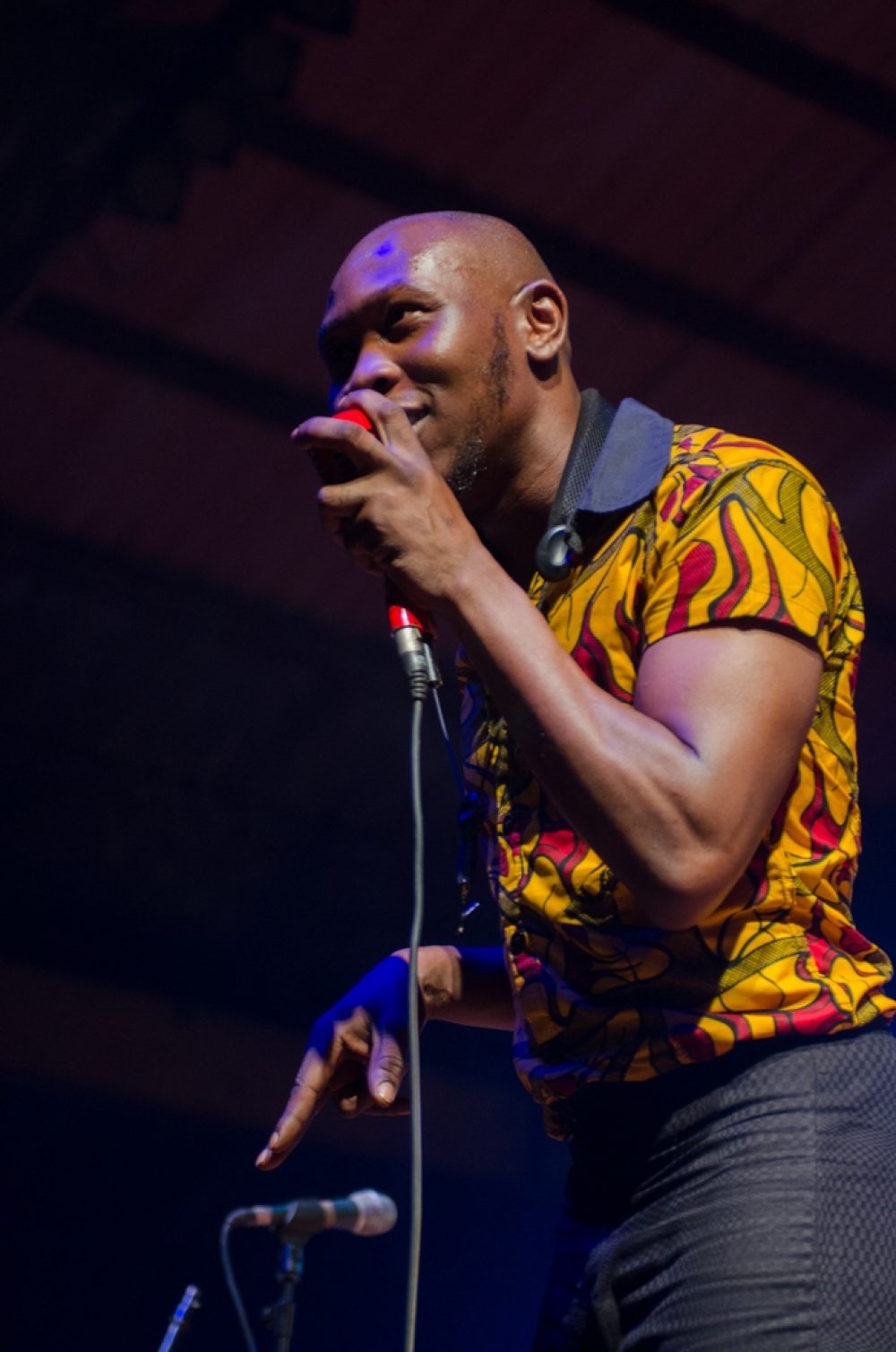
How does it feel to be back on the road again?
It takes some getting used to. Every day, I just want to go home.
I believe it. People got kind of used to being down on the farm during lockdown, you get back out there and it's a bit of a shock. In any case, from what I’ve seen, it doesn't show on stage.
This is definitely the first time I spent such a long time with my kid, and now I miss her so much. Since she was born, I've always been moving, home three months, travel three months, home three months, travel three months. But then just to get to be home for two and a half years just taking each other in, that was something, and now it's more difficult to be away.
How old is she?
My daughter is going to be nine in December.
I saw your brother Femi and his son Made on tour recently. Made is quite a talent, a multi-instrumentalist and composer. He seems to have some new ideas about where Afrobeat should go. What's your feeling about Afrobeat music now, and its place in the Nigerian scene these days?
I think it's coming full circle again, not just in Africa but globally. There are so many young bands in the world, African bands. Not just pop bands, but young people who are making bands that are really advancing, pushing the envelope and the sound. For me, I don't care about pop music too much. But what I expect from the masters of African entertainment is that they understand and they must create a market for all the kinds of music Africa has to give to the world, so we have a larger share of the market. Instead, they are putting all the attention on just one little part of African artistry, and diminishing what Africa can actually offer in the bigger entertainment world. So that's my issue with the industry. I feel like it's time for all birds to fly high.
It's interesting that you say that. At Afropop, we’re in this position where, after 35 years in music, the icons of our history are being overshadowed by this new generation of young talents, as you say, mostly pop musicians. There's a huge promotional focus on this one area, and it does create challenges. This generation is developing a whole new idea of what African music is, and it's a far cry from what your dad did, or what a lot of the people that we came up with did. So you're saying it’s because of the “masters of African entertainment.” Their window is too narrow.
Yeah. It’s basically the same thing they've done with African music in Europe, and America and South America and Central America. They want to commodify African music to the extent that it fits into the materialistic culture that capitalism needs. So even if it stays African music, they must think of Africans’ lived experience. Artists are talking about the same things that artists in America talk about: drinking champagne, driving fast cars, sleeping with all these women and all this. That is not the true lived experience of the majority of African people. So yeah, definitely the mainstream wants to link itself to that because they are one big corporation. The message that goes out is to buy all this stuff. I understand their business interests. But we are African people and we have our own interests too. All African people cannot do the same thing.
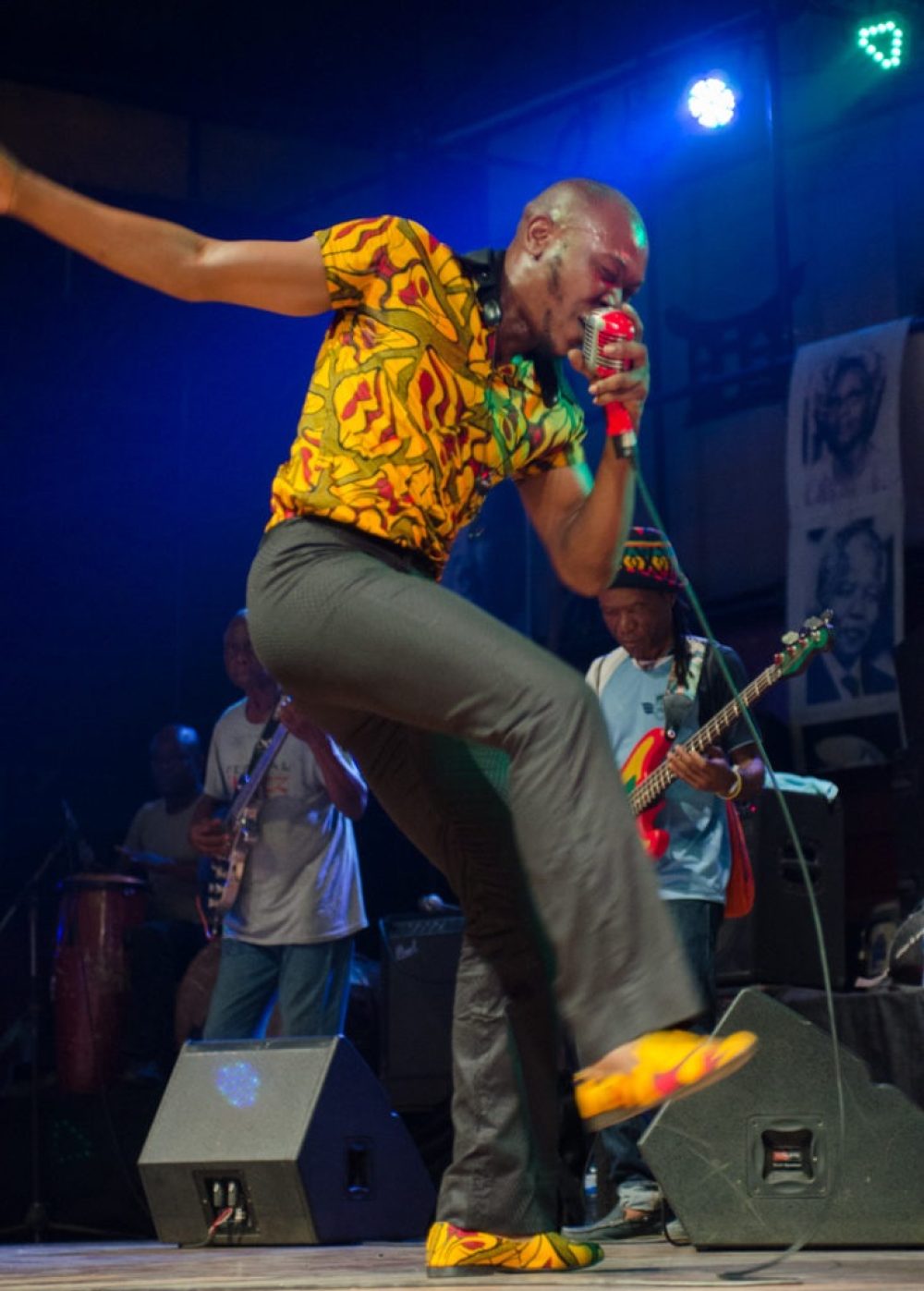
You are in touch with a lot of younger artists in Nigeria. Do you see any kind of movement away from materialism and towards more conscious music? I hear it in Burna Boy's work, but he's a special case. In general, do you see any changes, any new tendencies?
I don't wanna talk about it.
You don't want to criticize other artists?
Yeah, it's not my style to tell people what to do.
O.K. But I’m just wondering if you see any signs that this might be happening.
I'm not paying attention. I try to put myself in the reality of who I am as an African person , and the things that come onto my radar. I deal with the day-to-day reality of African people. I don't need to go searching for anything. If it's there and it means something to ordinary African people, I generally find it. I don't have to search for it; it’s on my radar already. Africa is bigger than all of us. I'm not asking anybody to do anything for me. I move the way I move because I have to move the way I move. But it's not my place to tell anybody the way he should move, or the way she should move.
Let's talk about the Shrine. How has that great Lagos venue come through the pandemic?
The Shrine is the Shrine, very much ready for Felebration this year [October, 10-16, 2022]. But it's sad, because I am not going to be around this year. I'm very sad that I'm missing Felebration this year.
You’ll still be on tour.
Yeah.
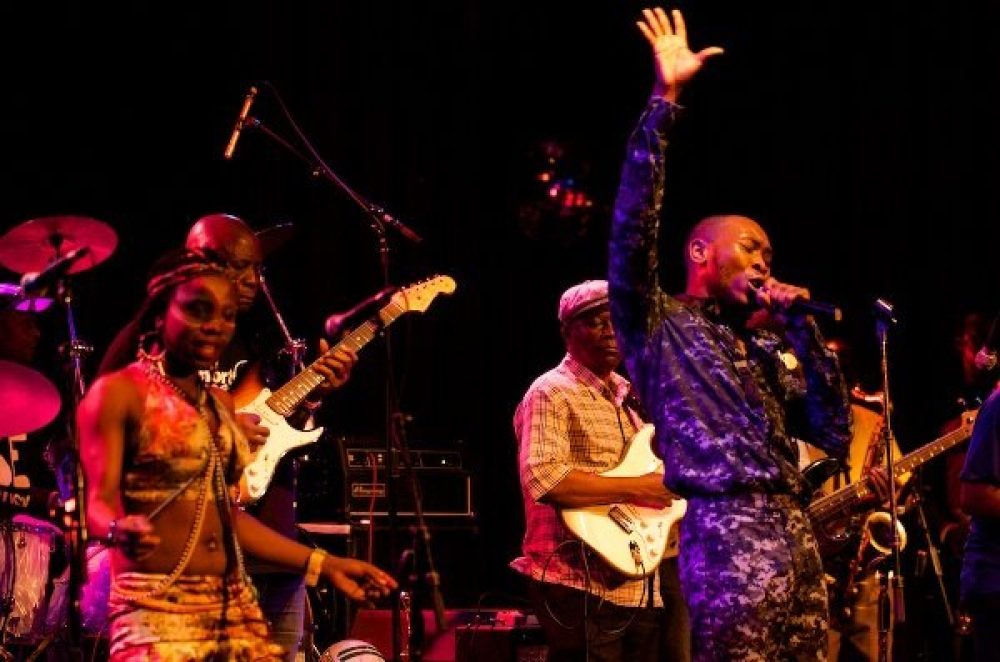
Well, I am involved in a project that could bring us to Felebration next year. Hopefully you'll be there. But it’s good to know that the Shrine is thriving. Back to the tour, you've been in the States for awhile. Do you notice anything different about the audience vibe, any differences in post-pandemic America?
I think there is a new vibe in the U.S. generally. The U.S. is very divided right now, and you feel the vibe of that tension. I was here in July and I'm here now, and I am feeling it. But I think the shows are kind of a safe space for people these days. It's a place where they can just be in that moment.
Tension. How do you experience that?
It's not for me to experience, just to observe. I am not an American. I am just observing.
Yeah, I guess you've got enough tension of your own at home.
Exactly. I'm just here observing.
Right. Plus, one can only take so much. Have you heard any new music that turns you on lately. Any new passions?
I tend to listen to a wide range of music, mostly from my wife. She is creating playlists so we just listen to whatever she's listening to.
I ask because music keeps changing with the generations. I imagine you're dealing with this because you're becoming one of the elders yourself these days. Do you see it as part of your challenge to reach young people who are being fed a lot of this more modern—as you put it—“materialistic” music?
I think young people just want honesty and truth. Regardless. The issue with the world is not the taste of young people. The issue with the world is that the grown-ups are copying the tastes of young people. That is the problem.
Copying the tastes of young people?
Exactly. That's the new problem. Allow kids to be kids. There needs to be some balance in the world. Too many grown-ups make money from distracting young people, especially these days with social media, buying at the attention of young people. You know, it reaches everybody, but if you're older, maybe you have a little bit more perspective. But for young people it's different. There are many powerful corporations in the world today vying for the attention of young people.
That's where the money is.
It is actually a shame that many adults are not protecting young people from this onslaught. Young people don't have the resources, they don't have the knowledge, they don't have the experience. There are a lot of powerful men in the world, and this is a man thing. It’s patriarchy we're talking about. Powerful men in the world enjoy the company of young people. They want to be able to hold the key to young people's desires, both male and female, and build it into damaging relationships, mostly of the sexual kind, but also the spiritual kind. So this is the world today and we adults, instead of standing up for our kids and making sure that they live in a world where they are protected, and their desires are not used against them, are joining this song and dance, saying things like "14 is the new 20."
It's not easy being young these days, is it?
Not easy, man.
Coming back to music for a second, you've got a new album in the works. Is it recorded yet?
No, it's not recorded yet. I've got the songs and I'm playing some of them at the shows. But we're gonna be in the studio soon. I'm just waiting for my producer to get ready.
It's good to play new songs in front of an audience before you record, right?
Definitely.
I know your dad was famous for the fact that, once he recorded a song, he never played it live again.
Yeah. But one day at the Shrine for some reason, he played “Power Show." One day he did that, in the ‘90s. We were all gob smacked.
He broke his own rule.
Unbelievable. In the whole 10 years I was listening, that happened one time.
And you were there.
Yeah man.
Well it's great to see you again and talk a bit. We wish you all the best on tour.
Bye-bye.
Seun Kuti Tour Schedule as of 08/29/22
Date | Venue | Location |
9/9 | Raleigh, NC | |
9/14 | Philadelphia, PA | |
9/15 | New York, NY | |
9/16 | Washington, DC | |
9/20 | Chicago, IL | |
9/21 | Minneapolis, MN | |
9/23 | St. Louis, MO | |
9/24 | Bentonville, AR | |
9/27 | Boulder, CO | |
9/28 | Fort Collins, CO | |
10/1 | Moreno Valley, CA | |
10/4 | Fiestas de San Froilan | Lugo, Spain |
10/10 | Paris, France | |
10/12 | Strasbourg, France | |
10/13 | Lons-Le-Saunier, France | |
10/14 | Istres, France | |
10/16 | Bordeaux, France | |
10/18 | Lille, France | |
10/25 | Viper Theatre | Florence, Italy |
10/26 | MONK Club | Rome, Italy |
10/29 | Cork, Ireland | |
10/29 | Cork, Ireland | |
11/1 | De Effenaar (Small Hall) | Eindhoven, Netherlands |
11/2 | Rotterdam, Netherlands | |
11/5 | Cartagena, Spain | |
11/7 | Villanos del Jazz | Madrid, Spain |
Web and Social
Website | Facebook | Instagram | Twitter | YouTube | Spotify








